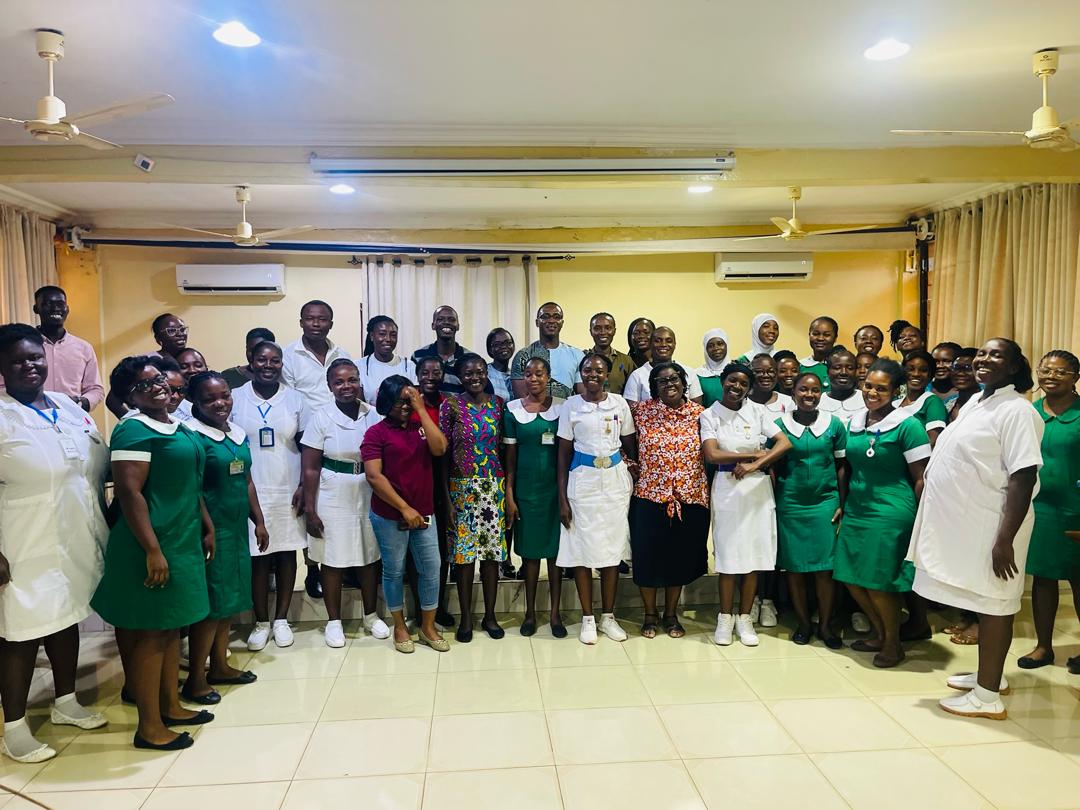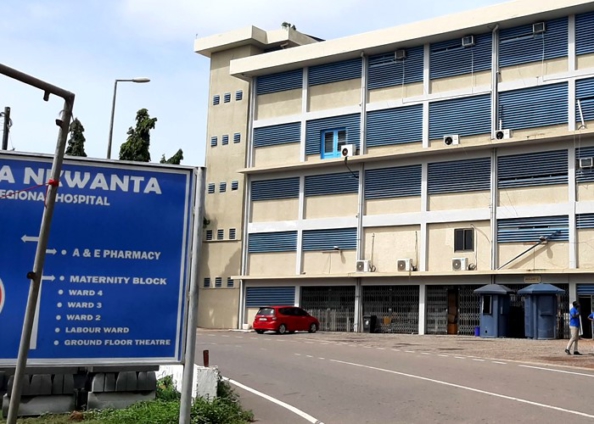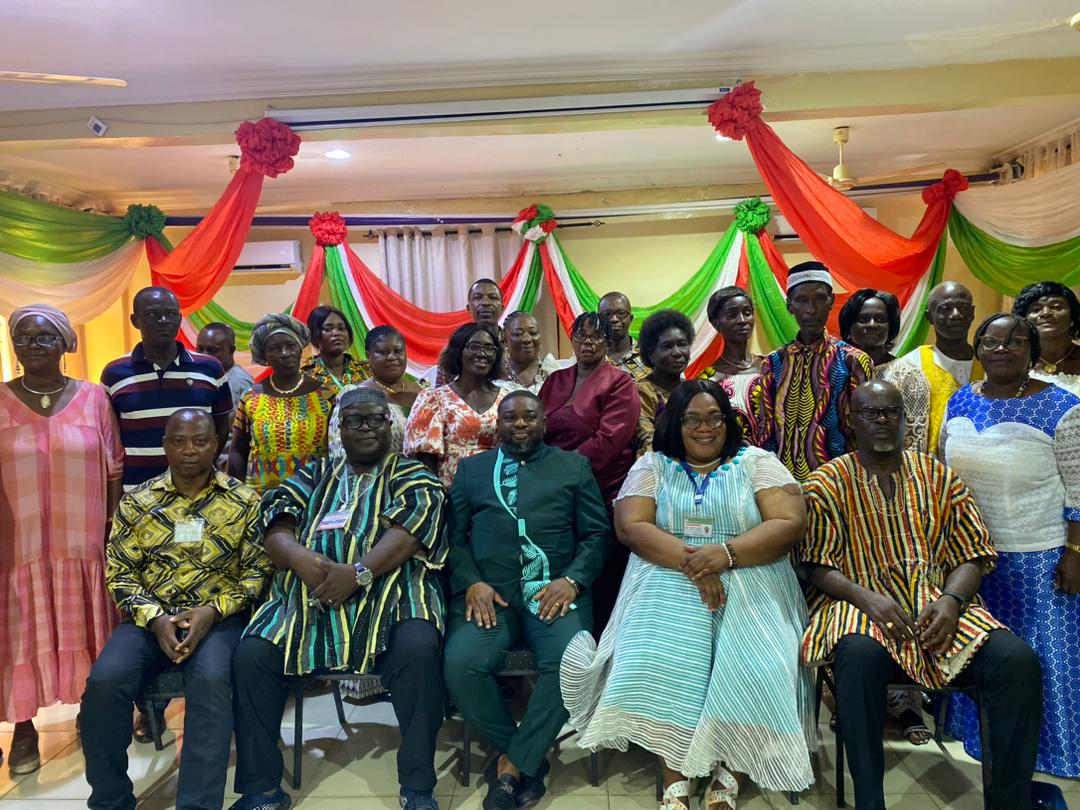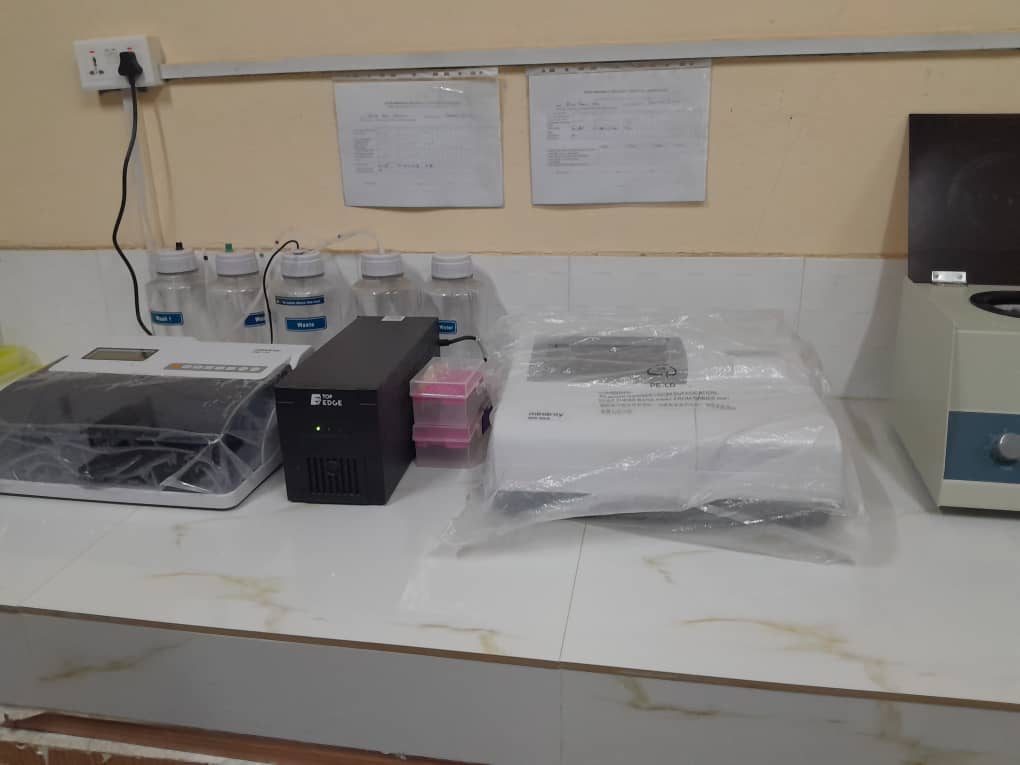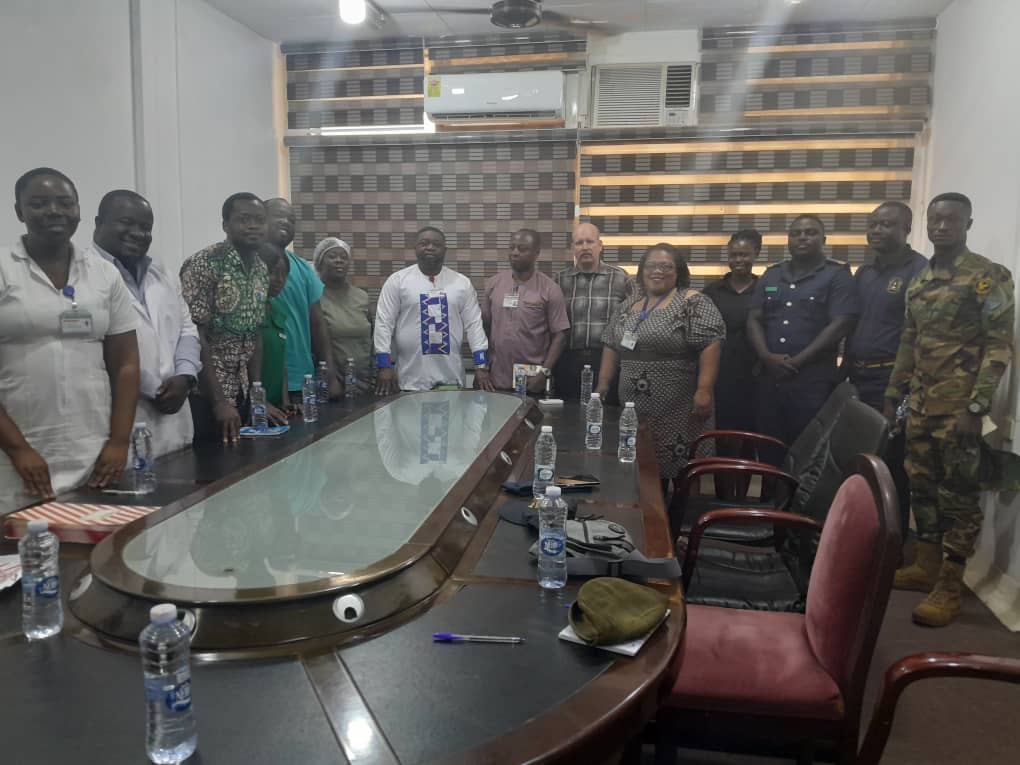Members of the Ghana Health Service Council have engaged Management and Staff of Effia Nkwanta Regional Hospital (ENRH) to listen to concerns and suggestions in order to improve the state of the facility and the service at large. The Council is in the region to visit service delivery points to interact with health managers and staff, patients and other key stakeholders, to have first-hand information and experiences of the challenges associated with the day-to-day delivery of healthcare services at all levels of the Service.
In an open forum held at the ENRH conference center, some members of Management highlighted on key issues for the council members to take note.
The Head of Pharmacy of ENRH Mr Francis D. Afari welcomed Council members to the Hospital Conference Center on behalf of the Medical Director Dr Joseph Tambil and gave a brief about the current state of the hospital.
Among the key issues, the Ward Manager of the ENRH Accident and Emergency Department, Madam Regina Quaicoe inquired if the Ghana Health Service has any arrangement in place to support the healthcare of staff and their dependents who at a point in time need medical care. She lamented on a situation where staff are confronted with the challenge of having to pay for the cost of treatment in their own facilities.
The Head of Procurement at ENRH, Mr Sulemana Mutaka expressed concern with delays by NHIS in reimbursing health facilities asking if there could be innovative ways of making the National Health Insurance Scheme (NHIS) more active. He appealed to the Council to liaise with the NHIA to find ways to attract more funding for the scheme.
The Head of Finance at ENRH, Mr Abubakar Sadiq also noted that Management of the facility had observed anomalies in the recently reviewed NHIS tariffs for health facilities. He said the Out Patients Department (OPD) general tariffs for secondary facilities was GH Ȼ15.34. With the current review, it is now stands at GHȻ 17.67. District Hospitals before the increment was GHȻ 12.34. With the new increment, it has come to GHȻ 22.07. Considering the figures, District Hospitals charges for OPD has increased by 77% whilst Regional Hospitals gained only 15%. Meanwhile it is suggested that more inputs are required for treatment of patients at the secondary facility level. Thus, it implies that the tariffs for regional hospitals should be higher. Mr Sadiq implored the council to intervene and help rectify this situation.
The Head of Internal Audit, Mr Simeon Osei Tawiah appealed to Council Members to intercede in the issue of reimbursement of funds the hospital expended on COVID patients in the heat of the pandemic.
The Head of Institutional Public Health, Dr Nana Esi Gaisie who spoke on behalf of children with special needs in the region observed that for all the referrals Cape Coast Teaching Hospital receives on children who need speech therapy, a third comes from the Western Region. She called on council to help alleviate the burden of such children by facilitating the needs for their treatment here in the region. She says the Sekondi School for the deaf for instance has a well-furnished hearing assessment center but they do not have an Audiologist.
The Head of Laboratory, Mr Bright Ameyaw inquired about the policy on the grade of ‘Chief’ for laboratory staff. According to him there are a lot of laboratory staff who get stuck at the ‘Deputy Chief’ grade with anticipation that they rise to ‘Chief’ grade before their retirement. He asked if something could be done about the situation to avoid discouragement or a state of apathy among such staff. Head of OPD Pharmacy, Mr. Samuel Owusu added voice to the call to rectify the situation of the increasing number of ‘Deputy Chiefs’ among all cadre of staff. He suggested that the position of Chief should be a rank but it is rather an appointment for one person as it stands now.
Principal Physician Assistant (Herbal Medicine), Mrs Ernestina Amponsem asked if the Ghana Health Service has any plan or strategy on complimentary or alternative medicine. She recounted steps taken by former Minister of Health, the Late Courage Quashigah, to invite experts from Israel to train health staff on alternative medicine such as dietary practices, physical exercises, massage, and chiropractic among others. Mrs Amponsem observed there appears to be a total eclipse over such initiative on alternative medicine after the initial efforts and appealed to the council to revive the concept.

Head of Obstetrics and Gynecology Dr Eric Mensah expressed a challenge on behalf of young mothers who have to return to work in just three months after delivery. He says many of them are unable to find nursing mothers and appealed that health institutions begin to establish nurseries and crèches to cater for the babies of such mothers when they resume work from their maternity leave.
Deputy Director of Nursing Services, Mrs Vivian Zormelo called on the Council members to intervene in fast-tracking the posting of qualified nurses and midwives to avoid them staying too long at home and going rusty after their National Service.
Council assured staff and Management that they will follow up on their concerns and liaise with the appropriate authorities to help address the gaps.
Story by Stacy Adams
ENRH PR Unit


